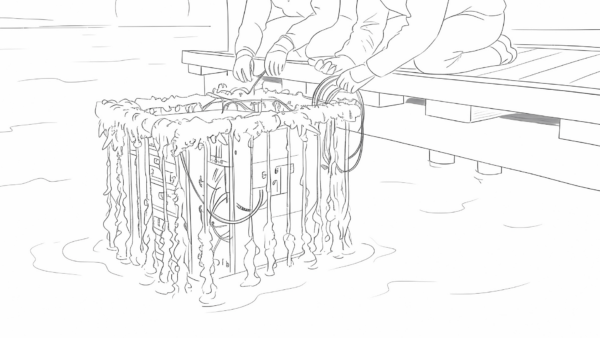

Digital Culture – 22 projects selected
In the first Digital Culture round of 2023, 22 proposals have been selected. The available budget was unfortunately not sufficient to award a grant to all positively assessed applications. Sean Gilis, coordinator Digital Culture Grant Scheme, reflects on the round.
general impression
In terms of themes, what stands out in this round is that many applications endeavour to relate to spiritual and transcendental experiences and forms of therapy in which technology plays a role, for instance a facilitating role. Artificial intelligence is also involved in many projects, in the topic, the tool, or the methodology. This trend was already noticeable in the previous rounds. Also, unlike in the previous round, a large number of applications in the area of games were positively assessed. In addition, game as a medium or methodology was utilized in other positively assessed applications by makers from outside the game sector.
selection
The available budget of € 350,000 was not sufficient to award a grant to all 27 positively assessed applications. This meant that prioritization took place. The procedure used is described in the Digital Culture Grant Scheme. After prioritization, 5 projects were eliminated from the selection.
A few notable projects from this round’s selection are:

Heldemar – All Rise
The popularity of video games is very high worldwide, just like the dedication of users playing these games. Against this background, Heldemar argues that games about the climate are often boring and educational. With the ALL RISE project, Heldemar aims to develop an exciting, fun and accessible game about suing big oil companies. The project combines real-life climate lawsuits against oil companies and other polluters with the playful format of successful court cases such as the Ace Attorney series. Inspired by the tone and style of Ace Attorney, ALL RISE allows players to play heroic lawyers and learn more about the ethical, legal and societal dynamics surrounding lawsuits and campaigns to force climate action. Part of the proceeds from the game will be donated to support climate-justice causes. The project is a collaboration between scientists from Utrecht University’s Anticiplay group and freelance game developers Niels Monshouwer (Heldemar BV), narrative director Meghna Jayanth and art director Enora Mercier.
Zuza Baninska – Kontrewers
Kontrewers is an audiovisual project by Zuza Banasinska that researches a stone with rock art found in the Polish village of Kontrewers. By combining digital and analogue research methods, the work proposes alternative genealogies of human species and depicts the world from their perspective. Zuza Banasinska restores the material culture through digital media, aiming to create speculative histories for queer, non-human and ‘other’ identities. Kontrewers tells the story of a shape-shifting creature – not limited by a body, but changing along with its environment. Digital world design is used as a tool for developing and selecting documentary, staged and archival images. Kontrewers
invites the viewer to go on an immersive journey through a more-than-human world. The result is a video work and a digital world. The 3D environment will be a tool for developing the video and also an outcome of the film process. Mateo Vega, Violeta Paez Armando, Kyulim Kim, Basile Monsacre, Boris Kollar, Rana Hamadeh (mentor), Metahaven (mentors), LIMA media art platform (distributor) and Kriterion Amsterdam (screening partner) are confirmed as collaboration partners.

Studio Sjef van Beers – Significant Content
Studio Sjef van Beers and Florian van Zandwijk argue that content creators on social media, such as film directors, musicians or designers, are generally not approached even though these creators make an important contribution to our daily media consumption and culture, including digital culture. With the hybrid platform Significant Content, popular creators who are active on various social media platforms are offered an ‘artist talk’ opportunity. Over four evenings that take place at the Nieuwe Instituut and Pakhuis De Zwijger, two makers are featured each time. They explain the process behind their content and a separate video of each speaker is published online. The project aims to bridge the gap between the critical approach to social media from the academic world and the enormous creativity and ingenuity of makerscreators who use social media as their canvas and stage.
Wintertuin Curaçao – Kon ta bAI
In the coming years, according to Wintertuin Curaçao, generative AI will boom globally with artificial-intelligence systems learning to create new digital images, video, audio and text. Kon ta bAI is an innovative textual and visual art project that draws attention to the possibilities and risks of this form of AI in a Curaçao context and uses the local language: Papiamentu. Wintertuin Curaçao is investigating whether it is possible to generate poetry texts in Papiamentu using AI. Software is being developed that can download texts online and an AI is being trained to generate new, correct sentences in Papiamentu. The AI is being developed further until it can produce poetic texts. Finally, an art installation will be created to present the AI to the public. Wintertuin Curaçao aims to create an innovative, interactive art experience as a leading local, cultural AI initiative. Curaçao start-up Brabu, Instituto Buena Bista, Carrying Narratives and Stichting Alsa Papiamentu are confirmed as collaboration partners.
Click here to see all the projects selected in Digital Culture in 2023.
numbers
Of the 63 subsidy applications taken into consideration, 22 are receiving grants. This brings the percentage of applications receiving grants to 35%. The number of starting-grant applications was very high at 28. Almost half of them received a positive assessment. The next closing date of the Digital Culture Grant Scheme is 16 August 2023.
Photo above: Warana







